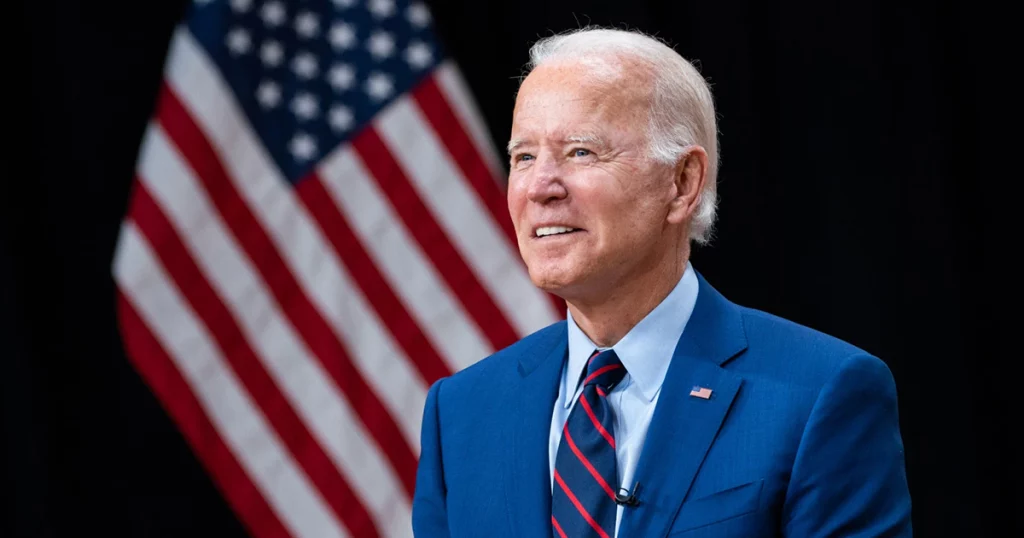In a historic move, President Joe Biden officially signed the Marijuana Research Bill on Friday, December 2, 2022.
The legislation encourages the Food and Drug Administration (FDA) to develop cannabis-derived medicines, and requires the Drug Enforcement Administration (DEA) to approve applications to become manufacturers of marijuana-derived, FDA-approved drugs. Cannabis materials can now be imported by manufacturers to facilitate research into the plant’s therapeutic potential as well. Ultimately, this bill will alter how cannabis is perceived and treated in the United States, and we’re glad that progress is being made.
MMCRA In The House And Senate
The “Medical Marijuana and Cannabidiol Research Expansion Act” passed unanimously in the Senate this week, just two months after it was approved by the House. The measure was supported by all 216 Democrats who voted in the House. Republicans were pretty evenly split, with 109 in favor and 95 opposed. Rep. Andy Harris (R-MD) is opposed to legalization but voted in favor of this bill, stating that he supports more research into medical uses for cannabidiol (CBD), which, when used medicinally, does not cause intoxication or impairment.
After the Senate approved the bill this week, it has made its way over to President Joe Biden’s desk, where he had ten working days to sign it into law.

The Cannabis Research Expansion
The “Medical Marijuana and Cannabidiol Research Expansion Act” introduced by Senators Dianne Feinstein (D-Calif.), Chuck Grassley (R-Iowa) and Brian Schatz (D-Hawaii) would establish a new, separate registration process to facilitate research on marijuana. The bill directs the Drug Enforcement Administration (DEA) to follow specified procedures to register practitioners to conduct marijuana research and manufacturers to supply marijuana for said research.
Finally, the bill contains several other provisions, including one that requires the DEA to determine whether there is an adequate and continuous supply of marijuana to research. The bill also prohibits the Department of Health and Human Services (HHS) from reinstating the interdisciplinary review process for marijuana research, allows physicians to explain the potential risks and benefits of cannabis and its derivatives to patients, and requires the HHS to report on the therapeutic benefits of marijuana for different conditions like epilepsy.
A Promising Future For Cannabis?
The U.S. Senate has passed a bill that would allow scientists to study the potential benefits of medical cannabis. It will give the U.S. attorney general 60 days to either approve an application or request supplemental information from the research applicant while also creating new pathways for scientists to acquire large quantities of cannabis.
The bill has been a long time coming—medical cannabis has been legal in the USA since the 90s, and scientists and researchers have been fighting for more access for decades as well. The government’s current policy for allowing research on cannabis has resulted in a cumbersome process that creates unnecessary delays, costing researchers time and money. Worst of all, though, the government’s incompetence has potentially harmed millions of patients by denying them the opportunity to seek medicinal cannabis or denying scientists the right to research.

The cannabis research bill being sent to Joe Biden’s desk is a great step in the right direction, but it’s still not enough. The bill does not allow for purchasing retail products from dispensaries for research purposes; instead, it requires that only those entities with a Schedule 1 registration be allowed to cultivate for research purposes. This means that if someone wanted to conduct research on the effectiveness of CBD in treating pain, they would need to go through their local university or hospital and ask them if they had a Schedule 1 registration so they could get access to their plants instead of just purchasing what is readily available to consumers and patients.
This unnecessarily long process limits the number of entities participating in the experiment since only those with Schedule 1 registrations are allowed access to cultivators. Overall, we’re happy to see some change in cannabis policy but are hopeful that more (and better) changes will be made.
Enjoyed that first hit? Come chill with us every week at the Friday Sesh for a freshly packed bowl of the week’s best cannabis news!
















